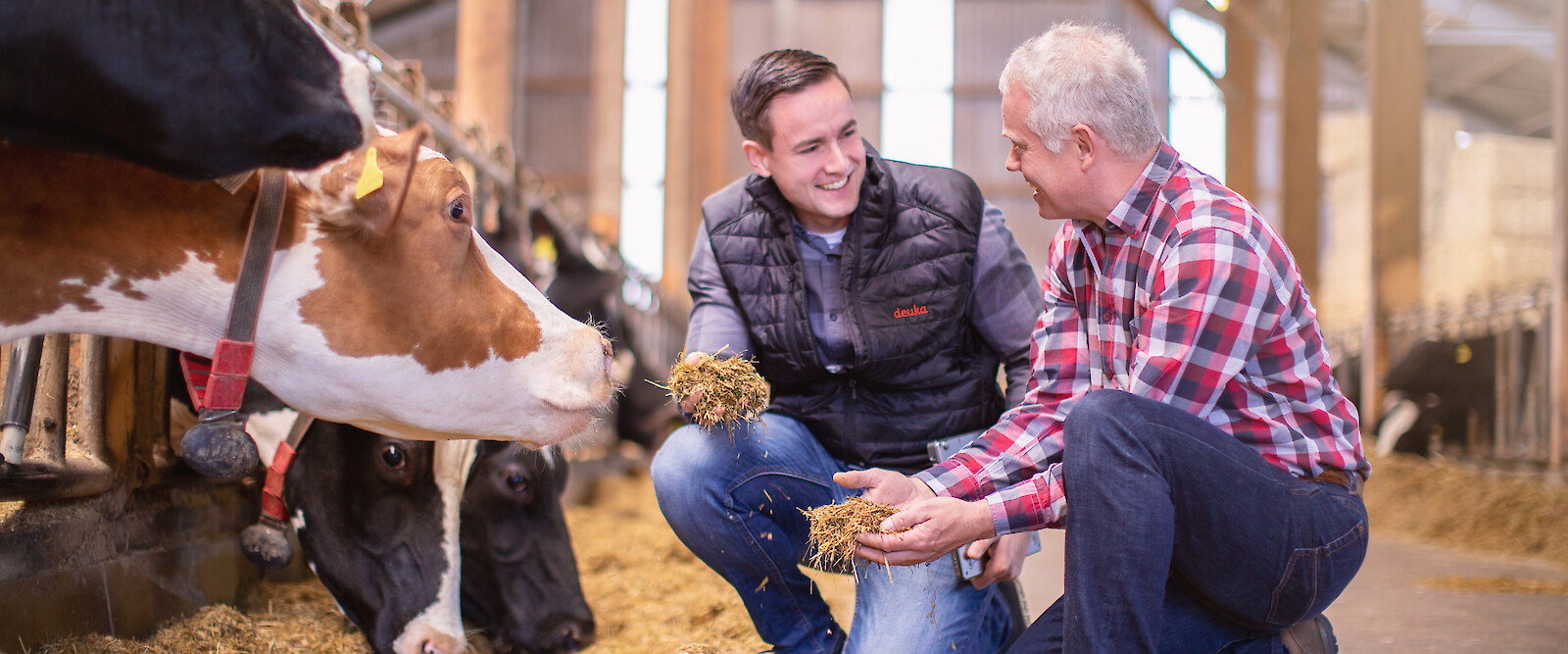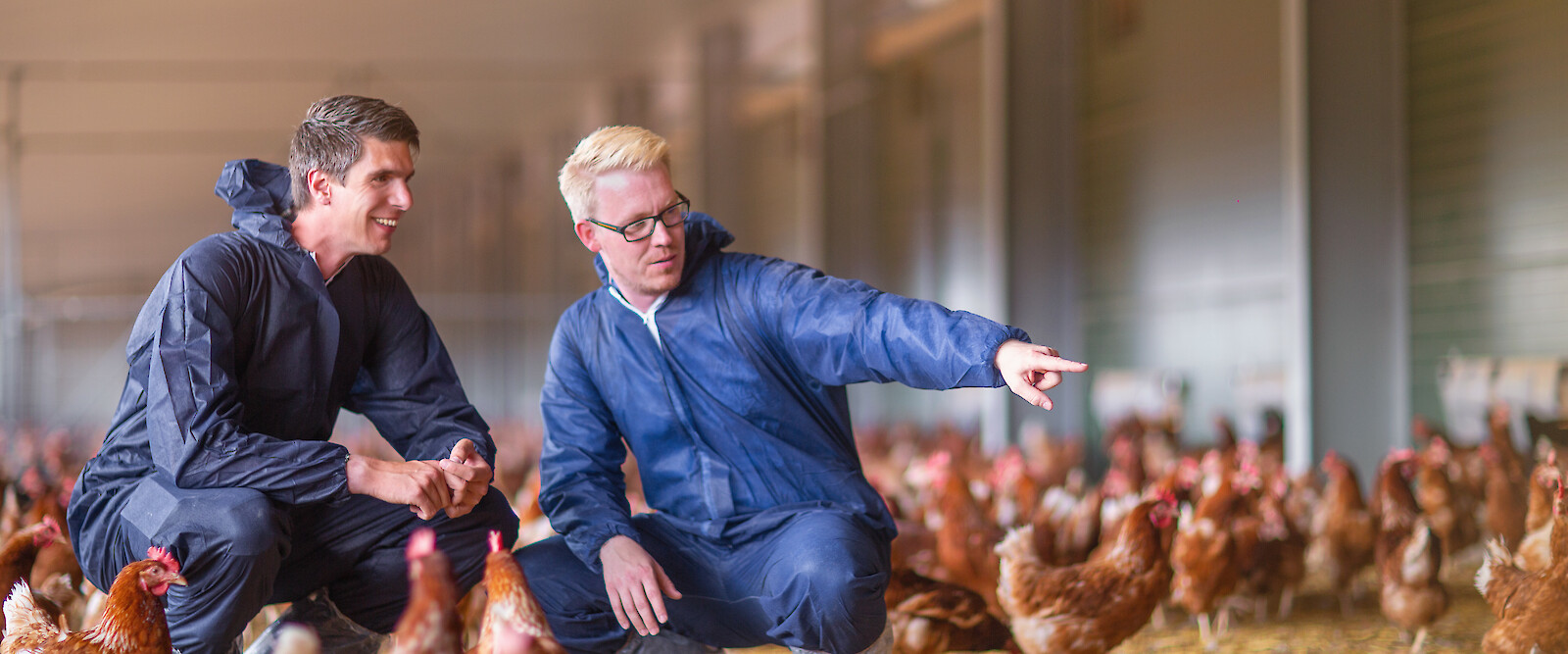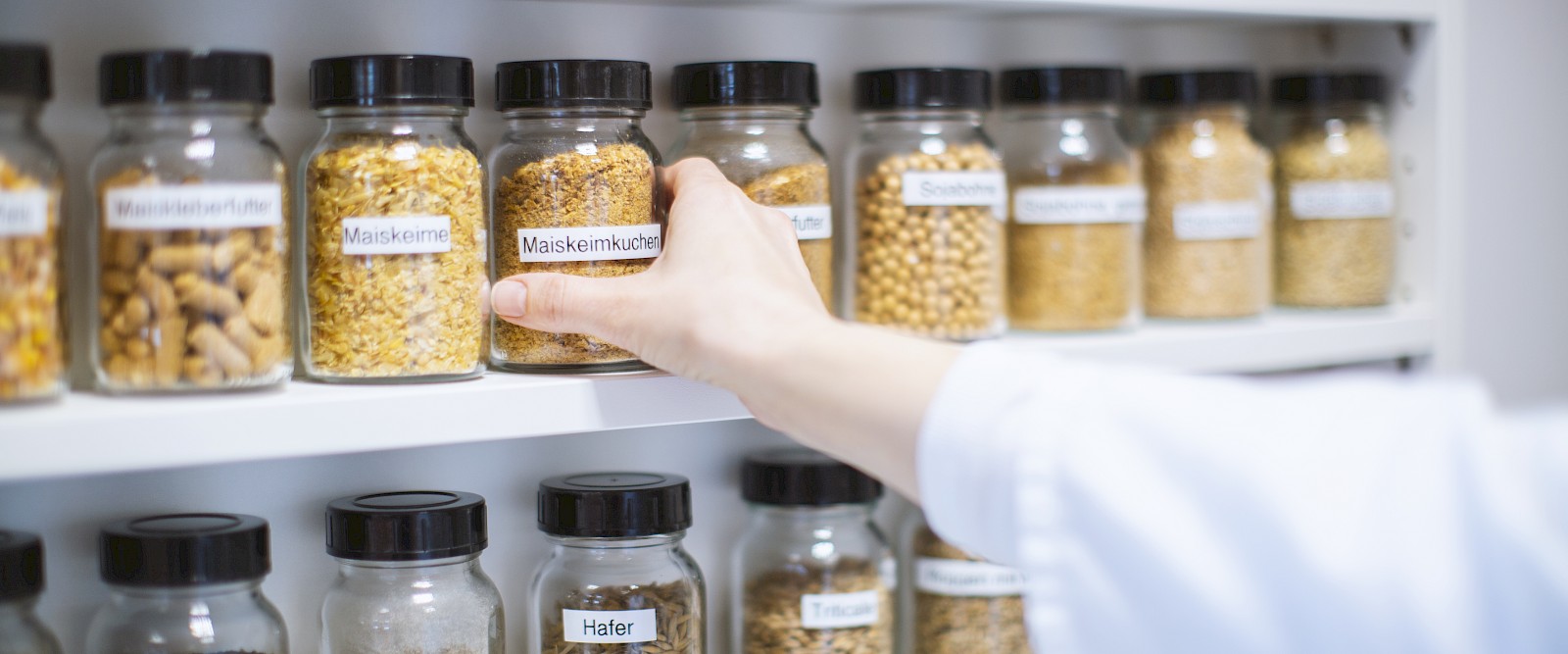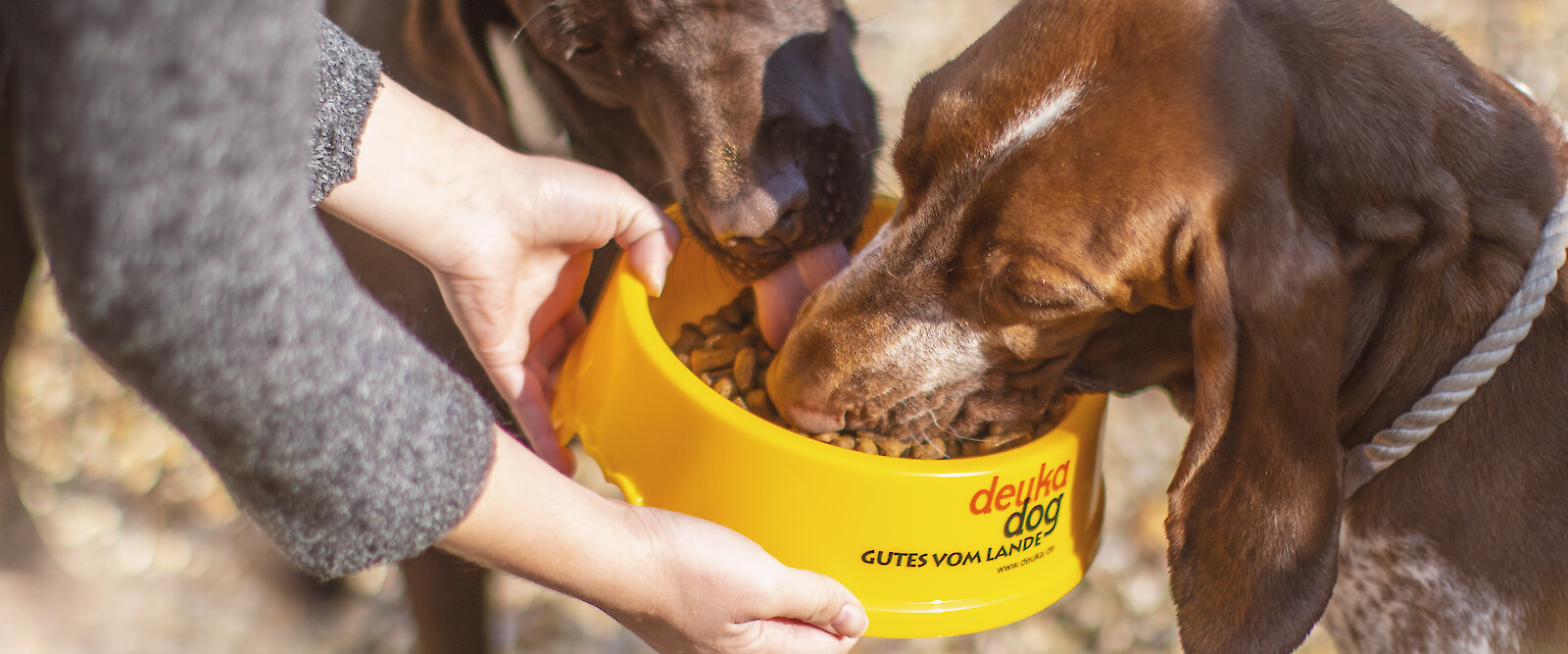Raw material and nutrient lexicon
Weitere Einträge
Vitamins
The vitamins are divided into the fat-soluble vitamins such as vitamin A, ß-carotene, vitamin D3, vitamin E, vitamin K and the water-soluble vitamins such as vitaminB1, vitamin B2, vitamin B6, vitamin B12, biotin, folic acid, niacin,
Pantothenic acid, vitamin C and choline
Vitamins are organic substances that are indispensable for the normal course of life processes in the organism and maintain health and performance. Vitamins cannot generally be synthesised by the organism itself and must therefore be supplied with food.
The fat-soluble vitamins have specific functions in the formation and maintenance of tissue structures. The water-soluble vitamins are involved in catalytic or controlling processes in the metabolism.
In addition, there are individual substances that have a vitamin character. Taurine for the nutrition of cats is to be mentioned here. The daily diet of our animals must be specifically supplemented with vitamins to ensure health and performance.
Today, the vitamins that are important for food supplementation are obtained in three ways: by chemical synthesis, by fermentation or by isolation from e.g. plant material. The vitamins used in animal nutrition are practically exclusively produced by the first two methods, with chemical synthesis accounting for the largest share. However, the fermentation process is becoming increasingly important. Today, vitaminsB2, B12 and C are obtained by this method. In this process, suitable microorganisms are selected that can produce the desired vitamin. The vitamin is then separated from the fermentation mixture and purified. The vitamins obtained via fermentation or chemical analysis are completely identical to the vitamins found in nature and have the same, in many cases even a better biological value.






